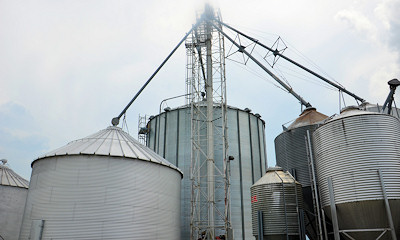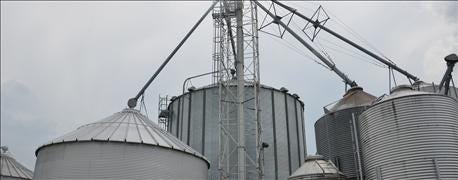
No one wakes up in the morning, goes over their daily to do list, and includes ‘become trapped in grain inside a bin.’ Not only that but most people think it couldn’t happen to them - it only happens to someone else.
However, often people include ‘haul grain’ on their ‘to do’ list in the morning. And sometimes they know they may encounter issues with moldy or crusted grain. Those are the mornings you need to keep a copy of the five basic keys to preventing grain bin entrapment handy, and review them before leaving the breakfast table.

THINK BEFORE YOU ACT: If you make these four words your motto when you head to the grain center, grain bin entrapments would be less likely to occur on your farm.
Bill Field, Purdue University Extension ag specialist, has devoted lots of time to studying grain bin entrapment cases, and has developed training programs for rescue personnel. At one point, Field and Matt Roberts, a consultant, prepared a report on hazards in flowing grain. That report includes five basic keys a farmer and his employees and family can follow to make sure no one needs to call for a rescue team.
1. Never enter a structure while unloading
Sometimes short speeches or talks are the best. These six words speak volumes: ‘Never enter a structure while unloading.’ It doesn’t say sometimes, once in a while, only if you’re late and you need to get to town- it says ‘never.’
2. Only enter a structure with an observer present
The observer may be an employee or family member. Whomever it is they should have the capability and training to do what is necessary if something goes wrong.
3. Do not enter a bin if grain is bridged or caked on walls
It may be easier to say than do, since somehow you have to get the grain out. But the advice is absolute. You can’t risk the consequences of a crusted layer over open space breaking through, or of a tower of grain caked against a wall falling on you.
4. Ensure stored grain maintains quality
Grain that goes out of condition is one of the leading causes of grain bin entrapments and deaths. Do whatever it takes in terms of monitoring equipment or a monitoring schedule to make sure you know and maintain the condition of grain in each of your bins.
5. Think before you act.
The list began with six simple words: ‘Never enter a structure while unloading.’ It ends with four simple words - ‘Think before you act.’ If you ‘think before you act,’ you won’t enter a bin with the auger running, you won’t enter a bin without protective equipment and you won’t enter a bin without someone around, acting as an observer.
About the Author(s)
You May Also Like




